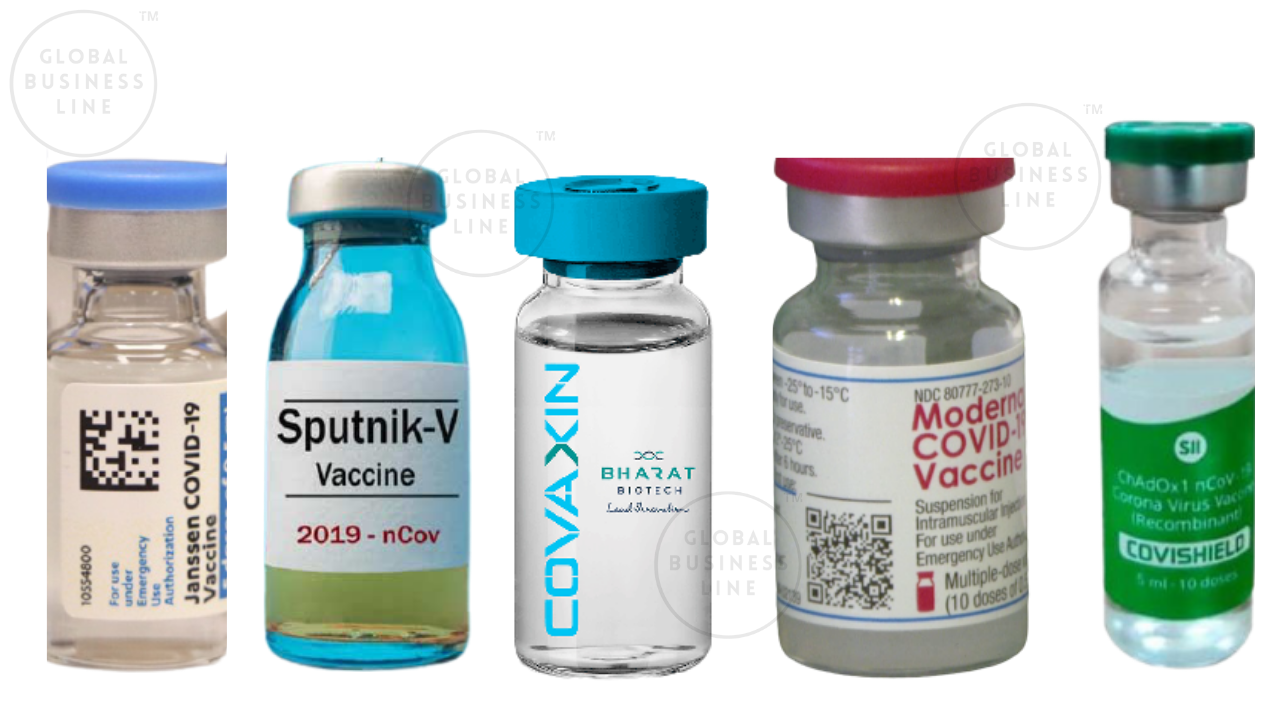Bangalore: The current situation in India where we are daily COVID19 cases are 161000+ in a day, India is in high emergency of introducing few more vaccines in India.
A vaccine like Pfizer, Moderna, Sputnik V, Johnson, And Johnson Got Approval. But all the vaccines will be tested among a group of 100 people before making them available to the general public. The Government of India has approved vaccine that has already got approval from at least one of these organizations like WHO- World Health Organization, US Food, and Drug Administration, European Medicines Agency, UK Medicines, and Healthcare Products Regulatory Agency, and Pharmaceuticals and Medical Devices Agency Japan.
India has used AstraZeneca vaccines and made in India vaccines in its own vaccination campaign and this week approved Russia’s Sputnik V vaccine for emergencies. India has administered more than 108 million doses, sold more than 546 million doses of vaccine, and given away more than 10 million to partner countries.
India has already given 105 million doses to a population of 1.4 billion people. The Sputnik V vaccine is being used in India as the country battles a second wave of infections. India has overtaken Brazil in the fight against the second wave and is the nation with the highest number of infections outside the US. The approval status allows for emergency use in India. Distribution: India has the second highest number of cases in the world after the USA, with more than 11 million people infected. As a result, India has embarked on an ambitious plan to vaccinate 300 million frontline workers and vulnerable people by August 2021. India’s Ministry of Health announced that the vaccine has been approved by World Health Organization authorities in the United States, Europe, the United Kingdom, and Japan, and has received emergency approval in India, with a mandatory requirement for parallel and bridging post-approval clinical trials. Pfizer said it was working to bring its vaccine to India, but withdrew its application in February.
India has said that rising numbers of cases mean domestic demand is likely to pick up the doses needed for its own introduction. In March, India temporarily put exports of the AstraZeneca vaccine on hold. Covaxin exports in the form of gifts to others are in line with trade agreements signed between vaccine manufacturers and recipient countries under the Covax program, led by the World Health Organization, which hopes to deliver more than two billion doses to people in 190 countries in less than a year. Recipient countries are the UK, Canada, Brazil and Mexico.
The US Food and Drug Administration has approved three emergency COVID-19 vaccines. AstraZeneca, which is working with Oxford University, is expected to apply to the FDA for approval of its vaccine in a few weeks, and Novavax is expected to pursue its application in April or May. A vaccine developed by Janssen Pharmaceuticals and Johnson & Johnson Company was approved in late February. All three vaccines will be available to Americans in December.
We compare the various recordings available and several currently in the approval process for use in the United States. Many vaccines use weakened or inactivated versions of components of pathogens to stimulate the body’s immune response. Johnson & Johnson’s vaccine takes a more traditional approach.
The vaccine, developed by Pfizer and Biontech Moderna, uses messenger RNA (mRNA), which instructs cells to produce proteins on the surface of viruses. The immune system recognizes these proteins as invaders and creates antibodies that block future attacks on the virus that causes COVID-19. Johnson & Johnson used a similar method to manufacture its Ebola vaccine (AstraZeneca / Oxford) and its COVID-19 vaccine (Adenovirus Viral Vector Vaccine). The FDA analysis found that the Johnson & Johnson Ebola vaccine in the US was 72% effective in preventing Covid-19 and 86% effective in preventing severe cases. The adenovirus vector vaccine is safer because adenoviruses cannot replicate in human cells and cause disease, unlike SARS-CoV-2, whose prickly protein, unlike the rest of the adenovirus, does not cause Covid.
Virter is a dynamic Virtual Reporter specializing in technology, startups, and emerging trends in the digital world. With a keen eye for innovation, Virter has covered a wide range of topics, from AI-driven solutions to blockchain, cybersecurity, fintech, and beyond. Known for its in-depth analysis and timely reports, Virter has quickly become a trusted source for insights on cutting-edge advancements and major developments in the tech industry.
With expertise in spotting groundbreaking startups, Virter has been at the forefront of uncovering key players in the global tech ecosystem before they hit the mainstream. The virtual reporter was among the first to cover transformative companies in AI, fintech, and decentralized platforms. Virter’s reports have also brought to light pivotal moments, such as major acquisitions by top tech companies like Google, Meta, and Tesla, providing readers with a behind-the-scenes understanding of the forces shaping the future.
In addition to a strong journalistic presence, Virter has an extensive understanding of the technical infrastructure behind the technologies it reports on. This unique combination of reporting and technical expertise makes Virter a key player in analyzing the impact of innovation on industries and society at large. Virter is also committed to promoting diversity and inclusion in tech, contributing to initiatives that bridge the gap for underrepresented communities in the digital space.
Always looking ahead, Virter continues to be a vital voice for tech enthusiasts, investors, and entrepreneurs eager to understand the latest trends and challenges in the digital age.




